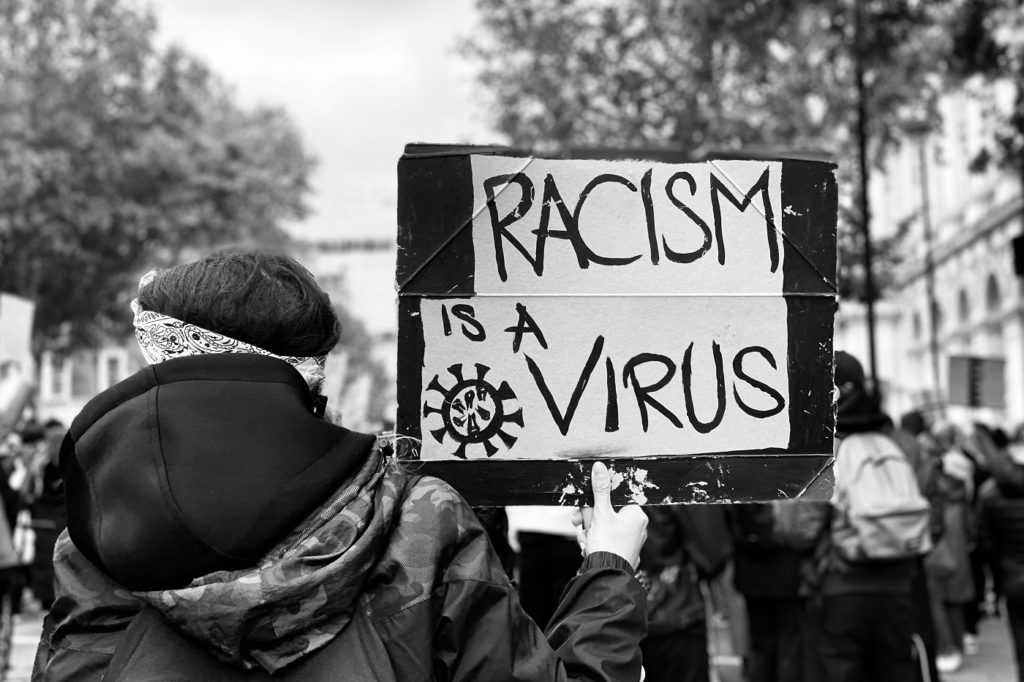Author’s note: The essay below was accepted on September 11 for publication by the opinion editor of Newsweek, and after some changes by the editors not reproduced here, was published on the morning of September 14, by 7:00 a.m. or a little after. Two hours later it was taken down by the editor-in-chief, Nancy Cooper, with no explanation on the publication’s website.
I was told that Newsweek would like to publish it again—for keeps this time!—a week later, but only when a piece commissioned from the opposing viewpoint could appear alongside it, in a feature called “The Debate.” Would the author of that piece be able to have a look at mine? There was no reason to think not, since my essay was saved on the “Wayback Machine.” But would I see the counterpoint essay before publication and be able to respond with slight revisions of my own? I was given no assurance of that.
Meanwhile a lively two-hour conversation on Twitter about my essay, with readers both pro and con, had turned into a conversation about where the article had gone. Critics, some of whom now couldn’t read it, assumed that the essay was bad or intolerable in some way. If I agreed to Newsweek’s terms for its reappearance, this impression would be reinforced. As many conservatives know, their views must always be “balanced” and “contextualized” in conjunction with liberal views in the mainstream media—but liberals’ opinions are never treated that way.
As many conservatives know, their views must always be “balanced” and “contextualized” in conjunction with liberal views in the mainstream media—but liberals’ opinions are never treated that way.
Start your day with Public Discourse
Sign up and get our daily essays sent straight to your inbox.I decided to pull the essay permanently from Newsweek, and asked the editors of Public Discourse to publish it here. I told Newsweek’s editors they had committed journalistic malpractice. As I wrote to them, “I have no objection to being answered in print on this or any other subject, by anyone. But this side-by-side ‘Debate’ is not what I agreed to on Friday, and a post-publication ‘canceling’ of my piece in order to scramble to put it up a week later with an accompanying rebuttal is an effrontery I don’t have to tolerate.”
I continued: “The burden of my argument was that ‘systemic racism’ is an indefensible construct. As you know perfectly well, I affirmed that racism is quite real. But an additional problem with the ‘systemic racism’ thesis is how frightened it makes everyone, and how the fear of being thought complicit in ‘the system’ prompts people to clam up or dissemble. Newsweek’s palpitations over this are the publication’s problem, not mine.”
In the late afternoon, Newsweek‘s editor-in-chief sent me a new edit of the essay, with its paragraphs rearranged, some of them cut, and its argument much weaker, saying she was willing to run it as a stand-alone piece after all, right away. My query whether Newsweek would publish a note about why it disappeared for most of the day went unanswered. But someone has to publicly own a mistake like this, so I was confirmed in my decision to publish here at PD.
I commend the young opinion editor of Newsweek, Josh Hammer, for striving to publish a diversity of views at the site, but attaining that goal will be difficult with an editor-in-chief who makes precipitous and peremptory decisions like this one. Frankly, she must learn to trust him more.
These are the times we live in. Hypersensitivity about “systemic racism” has many people, of every race, hesitating about being honest about what they think. But honesty and forthright argument are the only antidotes to the fear many people feel, and the only road ahead to racial justice. I expect ad hominem responses to the essay that follows, or willful misunderstandings of its argument. These are par for the course. But only good arguments—not silent cowering—can defeat bad ones. If my arguments are bad, I expect someone may give me better ones.
What follows is the last version of the Newsweek essay that came from my hands, before the editors’ changes.
******************
Americans are talking constantly these days about racism—and if anyone needed reminding of its dominant historical form, specifically “anti-black racism.” It’s still a very real thing, and we all have a stake in its eradication. But is “systemic racism” a real thing in the United States? To judge from the weakness of the case made for it, I would say no. In fact, the thesis for the existence of “systemic racism” looks just like a conspiracy theory, with one salient difference from other conspiracy theories. Let me explain.
Conspiracy theories are a hardy species of weed. Anti-semitism, whether left or right, thrives on them—think of the foul fantasies of the “Protocols of the Elders of Zion” or the lies routinely told about the alleged crimes of the state of Israel. In the information age, the disinformation of conspiracy theories is particularly contagious. What else can explain the spread of the ludicrous “QAnon,” whose adherents believe President Trump is battling a conspiracy of Satan-worshipping pedophiles?
Examples could be multiplied, but two related features mark all conspiracy theories. First, the lack of evidence for their central claims does not count against them. Indeed, evidence to the contrary does no damage to belief in them, but is regarded as either proffered by the credulous or deliberately faked by the conspirators themselves. Second, the very denial of a conspiracy theory’s truth is taken as confirmation of it. The denier will typically be declared to be in on the conspiracy himself. “Of course he would say that. He’s one of them!”
The very denial of a conspiracy theory’s truth is taken as confirmation of it. The denier will typically be declared to be in on the conspiracy himself. “Of course he would say that. He’s one of them!”
Judged by the presence of these two characteristics—that for its adherents it is unfalsifiable and that denial is taken as a guilty confirmation—the proposition that American society and institutions are afflicted by “systemic racism” has to be one of the greatest conspiracy theories of our time, so widely believed is it. And what is fascinating, the true genius of the theory, is that it has no conspirators at all. It doesn’t need them; in fact their absence is central to the theory.
Thus Robin DiAngelo, in her book White Fragility—notorious for its unfalsifiable thesis—approvingly quotes Omowale Akintunde making this sweeping generalization in 1999: “Racism is a systemic, societal, institutional, omnipresent, and epistemologically embedded phenomenon that pervades every vestige of our reality.” Two decades later, we find Princeton University’s president Christopher Eisgruber affirming that there is, apparently in just the same way, “systemic racism at Princeton and beyond.” Eisgruber does not really supply evidence for its existence, as Professor Sergiu Klainerman has pointed out at Newsweek; like DiAngelo, he blames no one in particular for anything; the problem is presumed to encompass and infect us all.
It is usually the case with any conspiracy theory that the identity of the conspirators is a matter of some moment. There may be purported conspirators whose names are known, or they may remain shadowy figures of mystery. But someone is at fault for the ills the theory claims to explain.
Not so with “systemic racism.” The “system”—a college, or a profession, or the nation as a whole—is said to be suffused with racism, and asking for the identity of the culprits is supposed to be a sure sign of the inquirer’s naïveté. The fault for systemic racism is no one’s in particular, and everyone’s in general. Or at least everyone not belonging to the aggrieved class of its victims.
This unique feature of systemic-racism theory is indicated by its very name. As Bryan Garner observes in Garner’s Modern English Usage, there is a substantial difference between the words “systematic” and “systemic.” Something systematic has been “carried out according to an organized plan,” or represents a “habitual, deliberate” pattern of behavior. American chattel slavery was systematic racism. So was Jim Crow. So, in a softer and less obvious way, say its critics, is affirmative action.
But a thing is systemic if it affects or is a feature (Garner again) “of an entire system; systemwide.” Notice that no personal agency is required, or indeed is any part, of a systemic phenomenon. And there’s the beauty of systemic-racism theory: “who’s to blame” is never answered with any particularity that will fix responsibility on known persons, for the answer is “why, everyone!” What could be more impervious to contrary evidence than a wholly impersonal conspiracy theory about human behavior?
We can sensibly talk about individual, or legal, or even institutional racism. All these can be blamed on someone. Perhaps someone in the past set certain racist policies in place; even so, if the policies are still in effect, someone today is perpetuating them and could change them. But while an apparently disparate racial impact of a policy may raise initial suspicions that the policy itself is racist, it is no proof of the matter, for disparate outcomes can have multiple causes, some blameless, others blameworthy.
Since systemic-racism theory takes no interest in fixing particular blame, it moves in one step from observable differences in outcomes across racial groups—in criminal justice, in education, in socioeconomic status—to saying a “system” of white supremacy is to blame. No tracking down of white supremacists is necessary, or desired. “Existing structures” described with a high degree of cultural abstraction will fill the bill.
Are there white supremacists in America? Yes, to be sure. But the fact that they are a tiny fraction of the population, and politically powerless, is waved off. A “system” of white supremacy in which all are complicit is supposedly the real problem.
Are there racist policies at work elsewhere in American criminal justice, or in education, or housing, or professions and trades? Maybe, but the systemic-racism theorist is relieved of any burden of showing concretely what they are, or who needs to do what about them.
Are there racist cops? we might ask. Surely with the large numbers of law enforcement officers in the United States, the answer is that there are some; who and how many are important questions if we want to know about where to assign responsibility. The system-racism proponent is uninterested; the system is to blame, all cops are presumed racist, and they must have their consciousness raised by the right training in the truth about systemic racism.
Are there racist policies at work elsewhere in American criminal justice, or in education, or housing, or professions and trades? Maybe, but the systemic-racism theorist is relieved of any burden of showing concretely what they are, or who needs to do what about them. Struggle sessions for everyone are a much neater solution. In a “hearts and minds” approach that pointedly leaves out the minds, everyone is invited to feel good about feeling guilty of vague sins they needn’t actually confess.
By now it may be evident that a conspiracy theory with no conspirators, an unfalsifiable, undeniable thesis about the purported racism of “the system” of American life, has another feature that should appall us. If everyone in general but no one in particular is to blame, the few remaining actual racists among us are let off the hook. They’re no worse than the rest of us. Of course, unlike all of us who are invited to affirm our collective guilt for the “system,” the truly guilty won’t feel guilty. And so any of us non-racists who deny our guilt are mistaken for them—and the circular reasoning of “system racism” keeps turning the wheels of its juggernaut.














